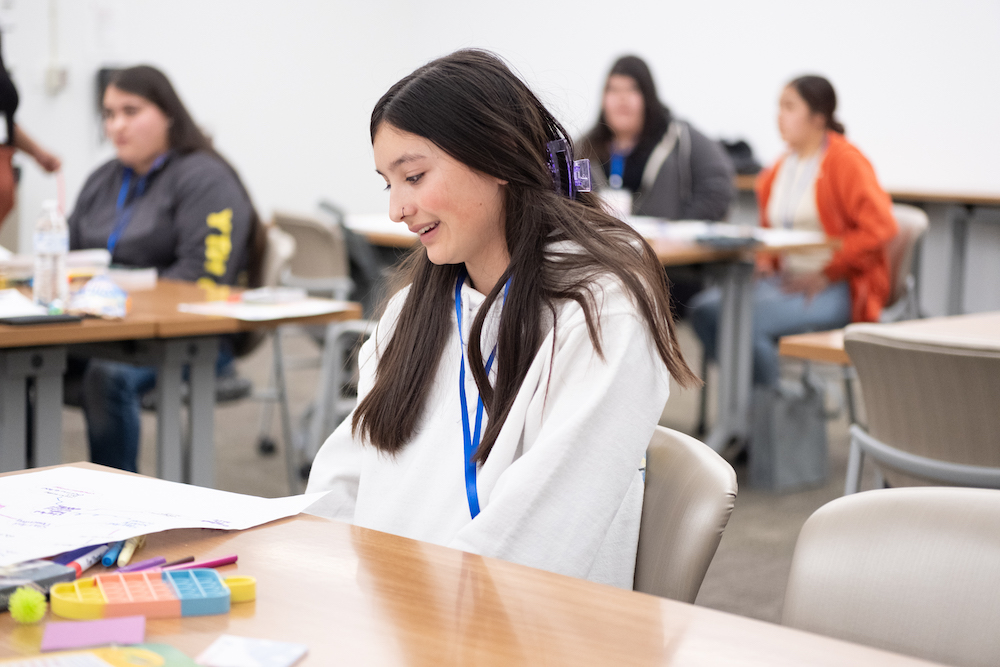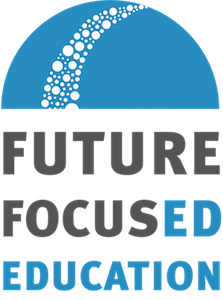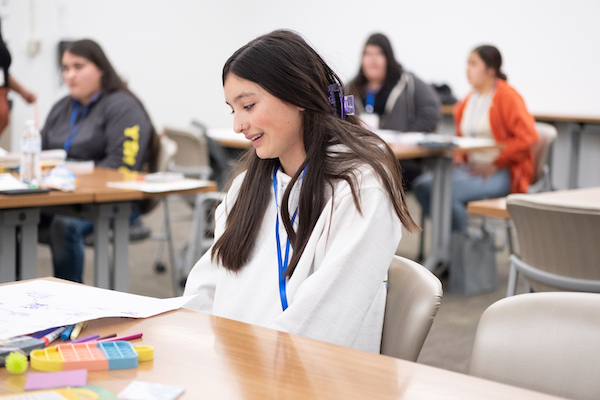New Graduation Requirements Will Empower Students and Teachers

In 2019, Future Focused Education interviewed young people from around the state to find more equitable ways of assessing their learning as part of the New Mexico Graduation Equity Initiative (NMGEI) through the Public Education Department (PED). These young people told us that the standard graduation requirements are not connected to who they are or what they can actually do. After coming to that realization, it was clear that capstones are the solution.
Since 2019, the PED has been working to improve graduation requirements, particularly for Demonstration of Competency requirements. For the past several years, Future Focused Education has partnered in this change process, working with the NMGEI to add capstones as a graduation pathway option.
This is an exciting time of change for New Mexican educators and students because we know that capstones, when based on graduate profiles and tailored to meet the needs of a specific community, can drastically improve student, family, and community engagement.
We are thrilled that the time has come for a new way to prepare young people for a future that can make them and their communities healthier and more prosperous.
Making Progress Right Now
The NMPED Assessment Bureau is changing requirements for demonstrations of competency through the rule change process. The public comment and hearing process ended on July 6th, establishing capstones and other kinds of performance assessments as graduation pathway options. These teacher-driven assessment options are in addition to standardized assessments such as the SAT.
This is a significant shift from previous years in which the state counted portfolios only as an Alternate Demonstration of Competency or ADC; this option was reserved for students who could not meet the minimum cut scores on the PARCC or End of Course exams.
This support for capstones is crucial to making education in our state more effective and equitable. It means that educators are empowered to say what students know and can do, instead of relying on flawed external standardized assessments to determine what students haven’t yet mastered.
For those of us who have been in the classroom in the last 10 to 15 years, we have felt the undue pressure of standardized assessments. Performance-based assessments like capstones include more holistic knowledge, skills, and attributes named in a school or district’s graduate profile, which affirm students’ culture, language, and identity.
What Teachers are Saying
High school social studies teacher, Alicia McClung, says that capstones have made her students interested in learning again.
“The introduction of capstones in my school has been a game changer. I would argue that for all teachers currently in the classroom, our biggest struggle is engagement. With the introduction of smart phones and social media, we constantly battle keeping our students interested in what happens in the classroom," says McClung.
"Top that with the fact that each individual student has their own battles happening at home. We are quickly discovering in my community that the traditional approach to education that was dominant since its implementation is no longer effective,” she says.
The community learning and assessment component of completing a capstone offers students authentic learning opportunities. In this way, capstones are malleable to local context and need.
These authentic learning experiences in the community re-engage students in school, as their learning becomes connected to their community instead of being about people and places far away or removed from their own experiences.
For example, students can practice, master, and demonstrate academic skills in core content areas while earning their New Mexico Seal of Bilingualism and Biliteracy (in the portfolio pathways). In communities where agriculture is an important industry or practice, the capstone can provide an opportunity for young people to learn the skills and local practices of farming in their communities.
For more about what a capstone entails, please watch our capstone documentary:
“We developed our first graduate profile after surveying members in our community on what they ultimately believed students need to know to be ready for graduation,” says McClung, who teaches in Aztec, New Mexico.
“It was wild to discover that they didn’t see traditional subject areas as the most important, but rather life skills that can truly be gained through other methods than a classroom approach. With this in mind, we were able to begin incorporating capstones in our school.”
Graduation requirements should reflect the interests and needs of our students and communities, rather than simply assume that we all need to know the same things. These new requirements are a step toward acknowledging this.
McClung’s school is a very small, alternative school where many of the students are behind in credits—severely delaying graduation.
“When we applied capstones in these situations,” she says, “we have been able to help students demonstrate they are ready for graduation through other means such as internships or community-based projects.”
More Work to Do on Graduation Requirements
In the last legislative session, House Bill 126 introduced new graduation requirements, including situating capstones as an elective pathway for graduation and required schools to create a graduate profile—an important part of the capstone assessment process.
It also included work-based learning for students during the school day, which would be a watershed opportunity for our young people.
HB 126 passed the House and Senate almost unanimously but did not make it across the Governor’s desk. New Mexican students, teachers, and communities need this bill to come back for consideration in the 2024 session.
McClung says capstones are how her students “gain the skills in our graduate profile, demonstrating they have earned the right to graduate and get their diploma."
She says, "While this is new in our school and we are always working to make improvements, we’ve had great reception from our kiddos. I’m so excited to continue developing our capstone class and helping kids earn their diploma in a way that is meaningful and relevant to their lives and community.”



Comments
That was a great article about I’m so proud of u. Capstone’s sounds like a good way to teach